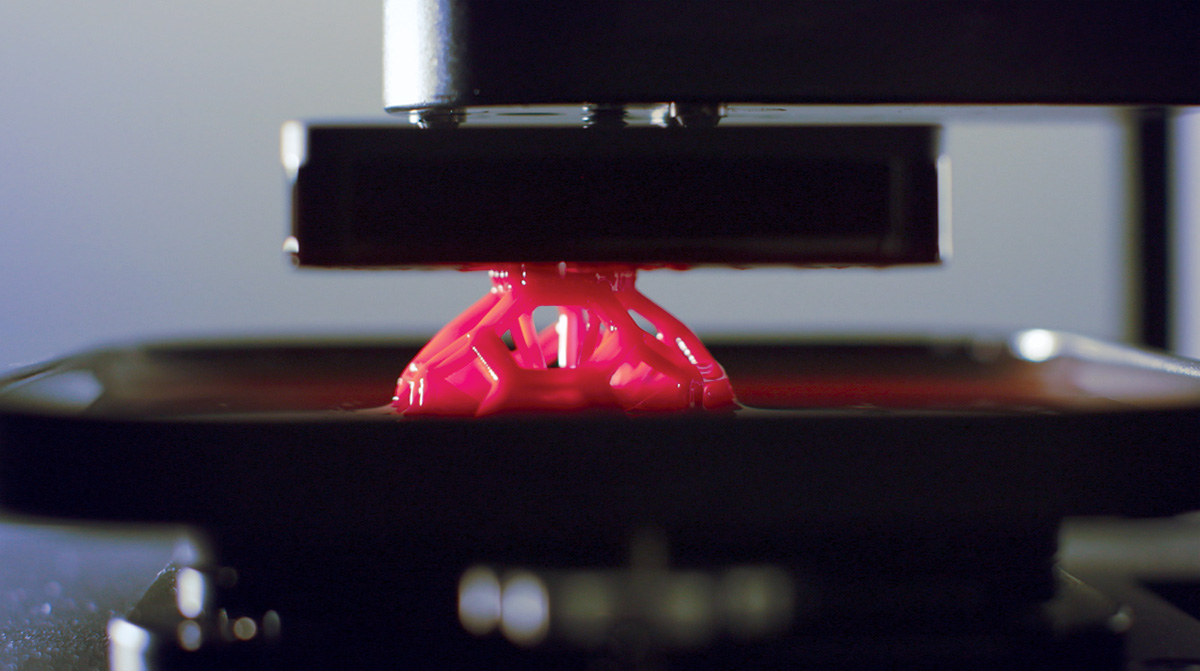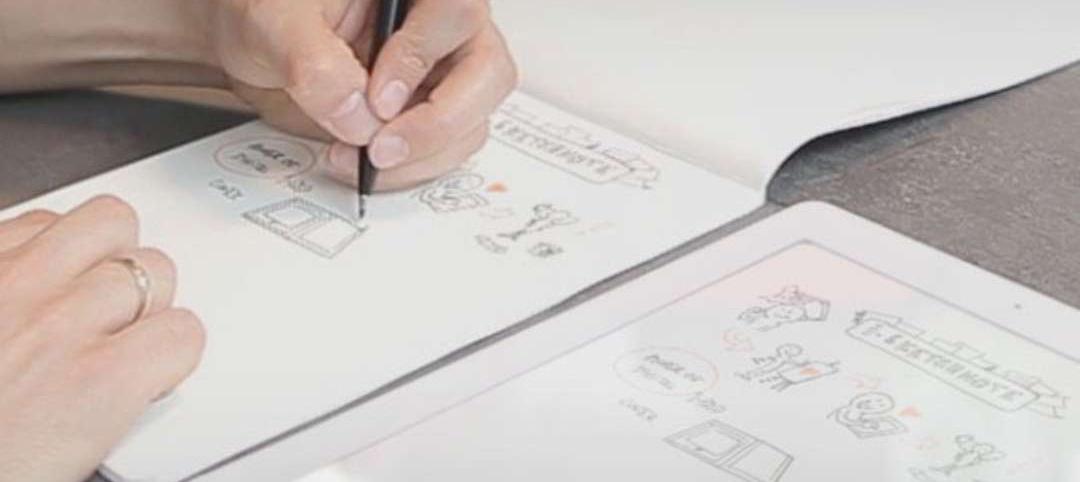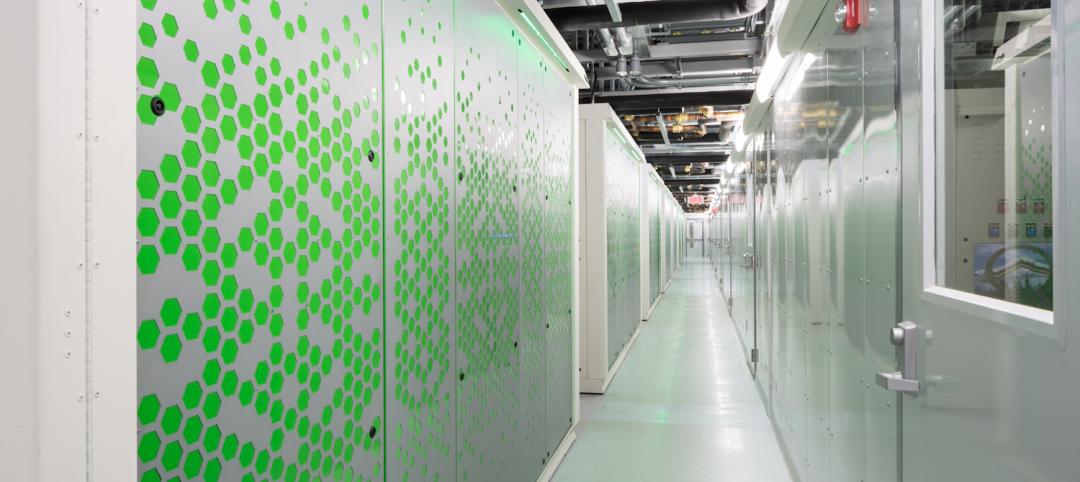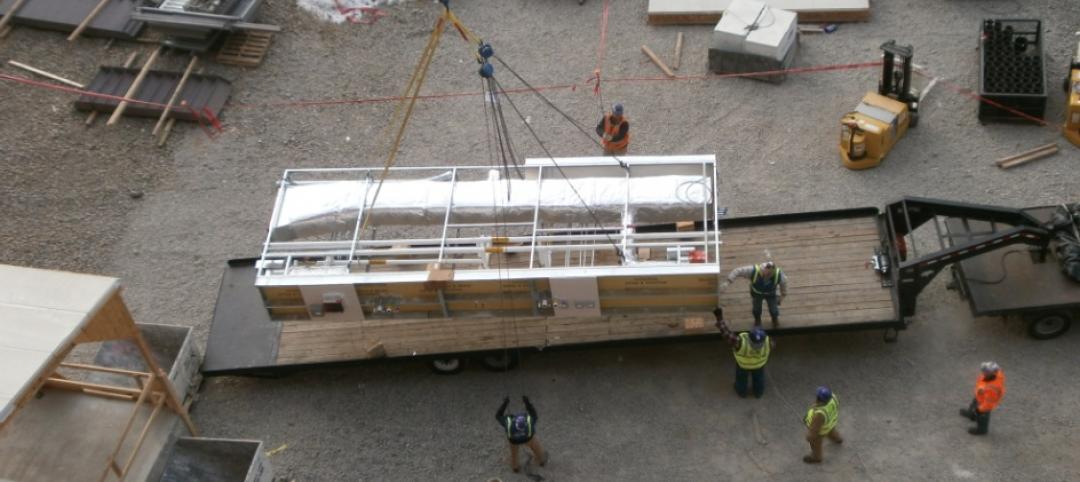Barron’s recently predicted that 3D printing would be a $13 billion industry by 2018, up from $600 million two years ago. AEC industry use might represent only a fraction of the total, but the trend is definitely ascending.
There’s no doubt the technology can do some fascinating things. Machines can now print with all sorts of powderized materials, from concrete to chocolate. ZGF Architects’ Robert Petty printed his wedding ring using powderized silver, and “it’s held up fine,” he says. At the recent 3D Print Design show in New York, Perkins+Will displayed a six-foot-tall model of a skyscraper that it had printed on a MakerBot machine.
The 3D printer industry keeps making strides in technology and affordability. WobbleWorks recently released an upgrade of its 3D printing pen—yes, it’s a pen, the 3Doodle—that it’s selling for $100 a pop.
After two years of secretive development, Redwood, Calif., startup Carbon3D unveiled a 3D printing process called CLIP (for “continuous liquid interface production”) that uses light to cure the extruded resin that forms the physical objects and models. The company claims this process is 25–100 times faster than anything that’s currently available. Autodesk recently invested $10 million in Carbon3D.
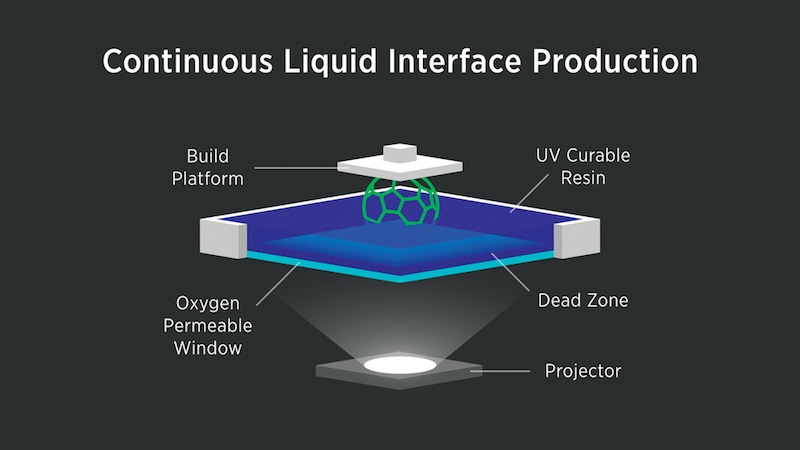 Carbon 3D's continuous liquid interface production process
Carbon 3D's continuous liquid interface production process
In March, Trimble released an update of 3D Warehouse, its online platform for sharing and downloading free 3D models and materials, which is a key component of the SketchUp 3D modeling software. Autodesk recently introduced Spark, an open-source platform that enables 3D applications and services to deliver 3D models for any printer or service bureau.
Higher quality printers, greater affordability, new technical processes—all represent promising solutions that AEC firms are looking for as they try to figure out where 3D printing fits into their larger technology picture.
Amid all the ballyhoo, there’s still the question of how embedded 3D printers will become in AEC firms’ workflow. Jorge Barrero, a Senior Associate at Gensler, compares 3D printing to a familiar domestic technology: “It’s like the microwave,” he says. “It never replaced the oven, but it made it into everyone’s kitchen.”
Related Stories
| May 29, 2014
Turn your pen-and-paper sketches into digital drawings in seconds with this nifty gadget [video]
Funded through Kickstarter, iSketchnote uses a smart pen to instantly digitize hand-written notes and drawings.
| May 28, 2014
Video Blog: How today’s construction firms are bridging the BIM gap
Turner Construction and Parsons Brinckerhoff talk about how BIM has revolutionized the way that they conduct projects, and how technology has allowed them to leverage collaboration in such a way that they can work with decentralized teams.
| May 22, 2014
BIM-driven prototype turns data centers into a kit of parts
Data center design specialist SPARCH creates a modular scheme for solutions provider Digital Realty.
| May 22, 2014
Facebook, Telus push the limits of energy efficiency with new data centers
Building Teams are employing a range of creative solutions—from evaporative cooling to novel hot/cold-aisle configurations to heat recovery schemes—in an effort to slash energy and water demand.
| May 22, 2014
7 ways it pays to use BIM for data centers
Here’s where AEC firms and owners are getting the most bang for the buck when using BIM/VDC to coordinate data center projects.
| May 22, 2014
Big Data meets data centers – What the coming DCIM boom means to owners and Building Teams
The demand for sophisticated facility monitoring solutions has spurred a new market segment—data center infrastructure management (DCIM)—that is likely to impact the way data center projects are planned, designed, built, and operated.
| May 14, 2014
Prefab payback: Mortenson quantifies cost and schedule savings from prefabrication techniques
Value-based cost-benefit analysis of prefab approaches on the firm's 360-bed Exempla Saint Joseph Heritage Project shows significant savings for the Building Team.
| May 12, 2014
Defining BIM – What do owners really want?
Given the complexities of the building process, it can be difficult for building owners to effectively communicate what they want and need with BIM. The response to the question usually is, “Give me everything.”
| May 8, 2014
Perfecting prefab: 8 tips for healthcare construction projects
Leading AEC firms offer helpful advice for using BIM to pull off prefab for everything from MEP infrastructure to whole bathrooms.
| May 6, 2014
BIM Forum Boston recap: Gilbane inspires with collaboration challenge
Key question from BIM Forum: How do you leverage technology by finding trade partners that are up to speed?


